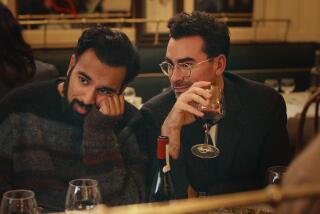For a spell, at least, it’s out with multi-tasking
- Share via
SEATTLE — “The pace of life feels morally dangerous to me,” Richard Ford, the novelist, wrote six years ago.
It has only gotten worse since then, complains David M. Levy, a victim of information overload who is also a computer scientist at the University of Washington’s Information School.
Levy is all but helpless, he says, when new e-mail arrives. He feels obliged to open it. He is similarly hooked on the news, images and nonsense that spill out of the Internet.
“We are living lives of Web fragments,” he says. “We don’t remember that it is part of our birthright as human beings to have space and silence for our thoughts.”
Levy is fed up, and starting tonight -- with the help of cardiologists, monks, storytellers, hypertext editors, Zen masters and a choir -- he is doing something about it. He has organized a conference here called “Information, Silence and Sanctuary,” which will diagnose and prescribe treatment for what is ailing Levy -- and, in his view, most of the developed world.
Information-polluted people need to organize and protect psychic space and quiet time, Levy believes, much as environmentalists organized in the 1960s to protect wetlands and old-growth forests.
This week’s conference seems likely to prescribe info-overload treatment that is similar to what Levy has prescribed for his own life:
“For me,” says Levy, “one day a week is unplugged.”
More to Read
Sign up for our Book Club newsletter
Get the latest news, events and more from the Los Angeles Times Book Club, and help us get L.A. reading and talking.
You may occasionally receive promotional content from the Los Angeles Times.








